Loyalty is easily one of the most prominent aspects of the luxury sedan segment. Buyers of these executive extensions of home life know what they like and for the most part, stay with what they know. For years, there have been repeat buyers of the BMW 7-Series, Mercedes-Benz S-Class and especially the Lexus LS. For the most part, this trend held strong until a little Korean company did something rather odd in late 2010 by introducing a car so commanding that it caused LS owners to think twice about their previous purchases. It only took the Hyundai Equus a few months to get settled into its segment and begin stealing sales from the potentate of the luxury sedan market. According to JD Power & Associates, 20.8 percent of Equus trade-ins came from Lexus drivers. Hyundai was proud enough to reveal that 65 percent of those trade-ins were from previous owners of the LS. These figures raise a serious question: why are followers of the ultimate Japanese limo switching to a blatant experiment? To find out the answer, we managed to get our hands on a 2011 Hyundai Equus.

In 2009, the Genesis Sedan was launched and Hyundai had a dynamic hold on the BMW 5-Series and Mercedes-Benz E-Class market. Apparently a company never truly satisfied, the Equus hit showroom floors for the 2011 model year so the brand’s market share could expand even more. Standing at 203.1 inches, the ultimate Hyundai is 7.2 inches longer than its Genesis brother. Almost identical in dimensions compared to the long wheelbase Lexus LS, the Equus was produced with one purpose in mind: put to rest any and all preconceived notions stating luxury couldn’t come out of Korea. The recipe was written just right: long wheelbase, powerful but smooth V8 engine, rear wheel drive, spacious interior, far-too-much technology and special dealership treatment. Currently, there are approximately 320 Hyundai dealers who are certified enough to simply showcase and sell the car as each Equus requires a showroom within a showroom. A dedicated service “experience” was put in place to make the car that much more spectacular and Hyundai even added a cherry on top. With the industry’s best powertrain warranty comes an Equus exclusive five-year or 60,000 mile no-cost maintenance program. That even includes wear items such as tires.


Hyundai has had great success with its premium product’s selling strategy. Managing to be even less complicated than purchasing a Genesis Sedan is optioning out an Equus. The 2011 model year brought out only two trim levels with no options on either one: Signature and Ultimate. The difference between the two is most prominent on the inside. Both cars get features such power adjustable leather seats with heating, Lexicon supplied surround sound, XM Satellite radio, navigation on a eight-inch touch screen, bluetooth pairing and HomeLink Integrated Transceiver. Base MSRP for the Signature is $58,900 but for an extra $6,500, an Ultimate can be bought. For that $65,400, an Equus buyer gets a forward-facing cornering camera, powered trunk, cooled rear seat, message, rear console refrigerator and a power rear sunshade. We sampled the slightly more humble Signature series bathed in a Black Noir Pearl suit.




Powering all 2011 model year cars is a drivetrain pulled straight from the Genesis Sedan. Under the hood is the Hyundai-built 4.6 liter DOHC Tau V8. Producing 385 horsepower and 333 lb-ft of torque, the Equus puts its thrust to the ground via the same six speed automatic found in the Genesis. Smooth as butter and quiet as a mouse, the Tau fits the car’s personality well as it isn’t monstrously fast but it knows how to get out-of-the-way. Acceleration is calmly powerful as 60 mph from a standstill can be found right around six seconds. Above that speed is where the Equus hits its home as highway cruising is one of its better specialties. The steering is laser guided and true while road noise might as well not even exist. The V8 and six speed settle down nicely and offer high levels of comfortable fast lane speeds. If triple digits are required, the Equus will comply but it feels much more comfortable in the middle lane as more power could be had in a car carrying this much weight. Fortunately, Hyundai will put out these grips for the 2012 model year as the Genesis R-Spec’s 5.0 liter direct injected 429 horsepower V8 will be put under every Equus hood. Replacing the six speed will be another R-Spec specialty, the Hyundai-built eight speed automatic.


Admittedly, track days are not an Equus specialty as this car was made for quiet, luxury-filled cruising. Riding on a fully independent multi-link suspension with air springs, the Hyundai might as well roll on clouds. With an auto leveling feature, the suspension does everything in its power to not let occupants know a road has suddenly become rough. Sadly, when most luxury cars fight so hard to separate the inside from the road, a robotic feel is created but that isn’t really the case with the Hyundai. Not as raw or communicative as say the Genesis R-Spec, the Equus still manages to let a driver know what is happening up front. Not too visceral but not too numb, the biggest Hyundai hits that happy, luxury car sweet spot when it comes to ride and handling.

Once inside the Equus, any occupant will find it incredibly difficult to leave. Even without the message feature, our Signature tester is simply a lap of luxury. The leather seating provided a level of comfort that would make a Lazy Boy store manager jealous while the space and leg room provided would never cause a complaint. The layout is intelligent while the controls for the stereo, navigation and bluetooth pairing are easy to use and never get in the way of driving. It is sad however to see and feel slightly cheap switches and buttons around the center console. These features are found on the Genesis and they are by no means justified on either car. The plastic just isn’t up to snuff compared to the rest of the Equus’s interior trim. Despite that, the inside is still ample enough to give the Germans and Japanese a run for their money.





Hyundai has been taking a lot of big risks in the past few years. A company once known solely for cheap, college-level economy cars now produces a hot-rod coupe, a 5-Series beating sedan, a odd-ball but endearing three door and a direct competitor to the ultimate luxury limos. No longer synonymous with “cheap”, Hyundai cars such as the Equus are proving that a Korean car maker can actually make cars. Other than a Lexus badge, there is no logical reason to pick an LS over the Hyundai as it just a competent, quiet and comfortable while costing tens of thousands less. Add in a 100,000 mile or 10 year full powertrain warranty plus no-cost maintenance and the Equus looks like it should be too good to be true. That isn’t the case as the car is, without a doubt, utterly impressive. And with the 2012 model year upgrades, the car looks to become even more remarkable. With the Equus, Hyundai has done something spectacular by creating a car packing so much luxury into such a small MSRP that it shouldn’t even be allowed. They have, for the time being, gotten away with a crime.
Photos: © Copyright 2011 Ossamah Shabbir



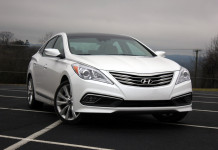
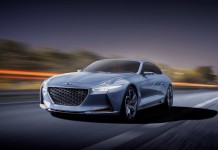
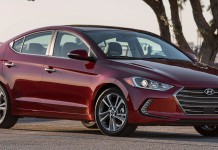
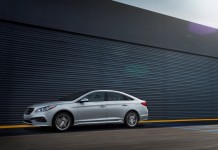
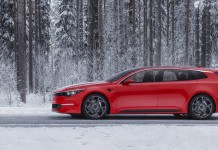

[…] 2011 Hyundai Equus Review […]
[…] 2011 Hyundai Equus Review […]